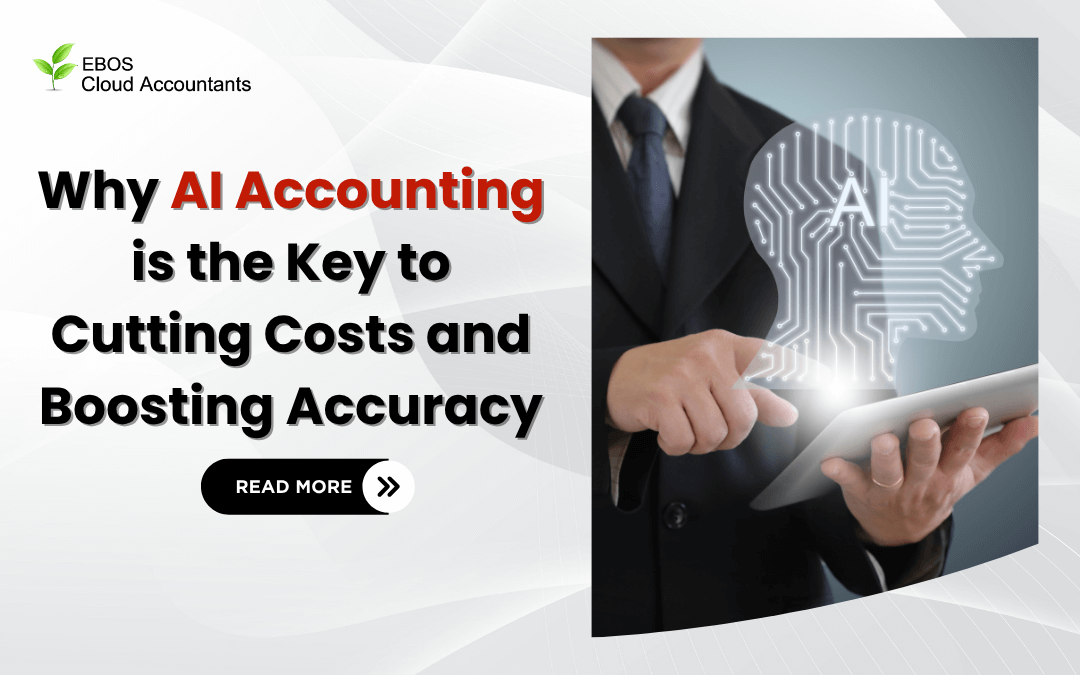In today’s fast-paced business environment, companies are under increasing pressure to optimize operations, cut costs, and improve accuracy. Accounting, traditionally a manual and time-consuming process, is now undergoing a major transformation thanks to Artificial Intelligence (AI). By leveraging AI accounting tools, businesses can streamline financial workflows, minimize human error, and gain real-time insights that drive smarter decisions.
1. What is AI Accounting?
AI accounting refers to the integration of artificial intelligence technologies into financial management and accounting processes. These tools use machine learning, automation, and predictive analytics to handle tasks such as:
-
Data entry and reconciliation
-
Invoice processing and approvals
-
Expense tracking
-
Financial forecasting
-
Fraud detection
Unlike traditional software, AI doesn’t just follow pre-set rules. It learns from patterns, making it smarter and more accurate over time.
2. How AI Cuts Costs for Businesses
a) Reducing Labor Costs
Manual bookkeeping requires significant human effort. By automating repetitive tasks such as data entry and bank reconciliations, AI reduces the need for large accounting teams, allowing companies to save on salaries and training.
b) Minimizing Errors and Avoiding Penalties
Errors in financial records can lead to compliance issues, penalties, or even loss of investor confidence. AI minimizes these risks by reducing manual input and cross-checking data automatically, helping businesses avoid costly mistakes.
c) Faster Processing and Operational Efficiency
AI-powered tools can process invoices, receipts, and transactions in seconds—something that would take hours or days for humans. This speed translates into cost savings and improved cash flow management.
3. Boosting Accuracy Through Smart Automation
a) Intelligent Data Recognition
AI accounting systems use optical character recognition (OCR) and natural language processing (NLP) to interpret invoices and receipts accurately. No more manual typing errors.
b) Continuous Learning for Accuracy
Unlike static accounting software, AI learns from historical transactions to predict patterns and detect anomalies, ensuring greater accuracy with every use.
c) Real-Time Financial Insights
With AI, businesses can access up-to-the-minute financial data, enabling them to make quick, informed decisions and stay ahead of cash flow issues.
4. Beyond Cost and Accuracy: Added Benefits
-
Fraud Detection: AI can flag unusual transactions and reduce the risk of financial fraud.
-
Scalability: AI tools grow with your business, handling large volumes of transactions effortlessly.
-
Better Compliance: Automated processes reduce non-compliance risks by ensuring accurate tax calculations and timely filings.
5. Is AI Accounting Right for Your Business?
If your organization is struggling with rising costs, error-prone processes, or delayed financial reporting, AI accounting could be the solution you need. Whether you’re a startup, SME, or large enterprise, adopting AI-driven tools can free up resources, improve accuracy, and give you a competitive edge.
AI is no longer a futuristic concept—it’s a necessity for businesses that want to thrive in a competitive economy. By adopting AI accounting today, you position your company for smarter financial management tomorrow. Check out our website at https://ebos-sg.com/ to explore more articles and discover how our Cloud Accountant Services can support you on your business.







